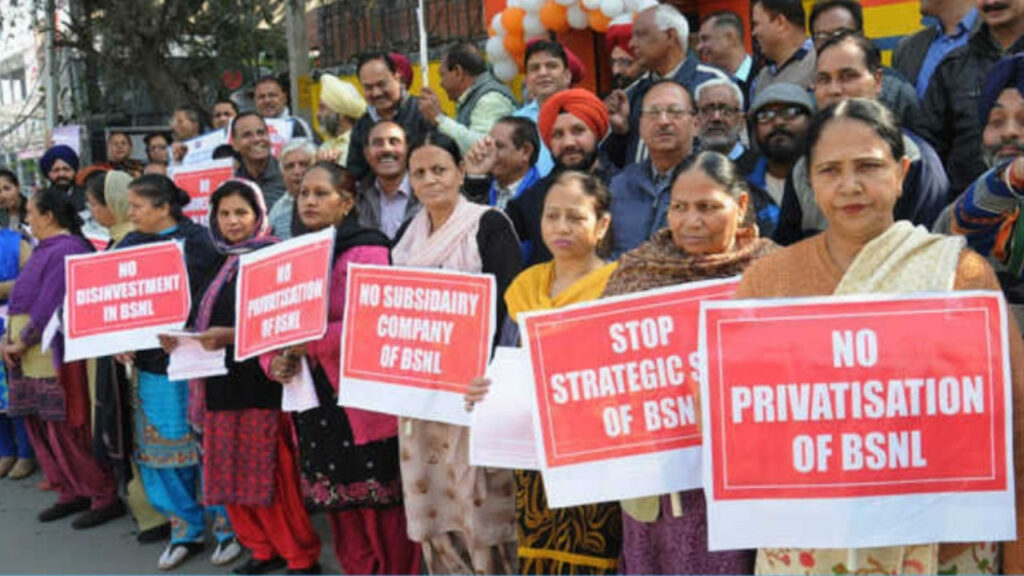The Department of Telecommunications (DoT) has temporarily halted a second voluntary retirement scheme (VRS) for Bharat Sanchar Nigam Limited (BSNL) after strong resistance from employee unions. The plan, which aimed to cut BSNL’s workforce by 35%, will undergo further consultations, with recommendations expected from Boston Consulting Group (BCG) within two months.

Second VRS Proposal: Objectives and Cost
BSNL’s management approved the second VRS proposal last week, projecting a workforce reduction of over 35%, or nearly 20,000 employees, from its current strength of 56,000. The scheme, estimated to cost the government ₹15,000 crore, was part of efforts to trim BSNL’s employee expenses, which accounted for ₹8,304 crore—43% of its operating revenue in FY24. The government hopes to make BSNL profitable by FY27.
Opposition from Employee Unions
Employee unions strongly oppose the VRS, blaming systemic inefficiencies rather than the workforce for BSNL’s struggles.
- P. Abhimanyu, General Secretary of BSNL Employees Union, criticized the government for shifting accountability onto employees.
- M.S. Adasul, General Secretary of Sanchar Nigam Executives Association, urged the DoT to address internal challenges.
These groups have engaged with BSNL management and the DoT to halt the proposal.
Past VRS and Financial Outlook
BSNL implemented a VRS in 2020, which aimed for 30,000-35,000 employees but saw nearly 80,000 opt for the scheme, significantly reducing the workforce.
Despite challenges, BSNL has shown signs of recovery:
- Losses for April-September 2024 reduced to ₹2,785 crore, compared to ₹2,951 crore a year earlier.
- Revenue from operations grew by 10.4%, reaching ₹9,235 crore.
The company plans to capture 25% of the mobile subscriber market by 2025, emphasizing long-term growth and competitiveness.












